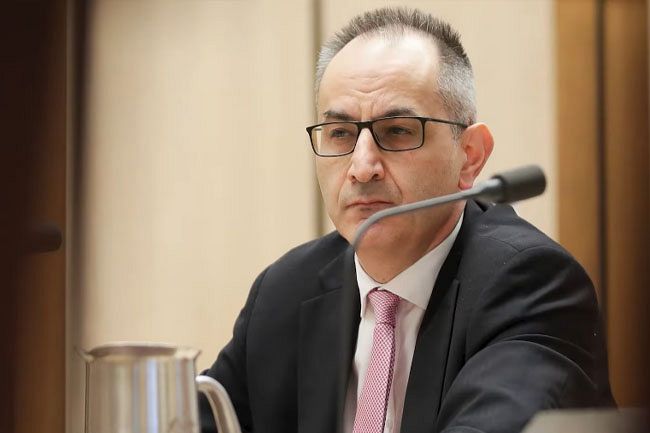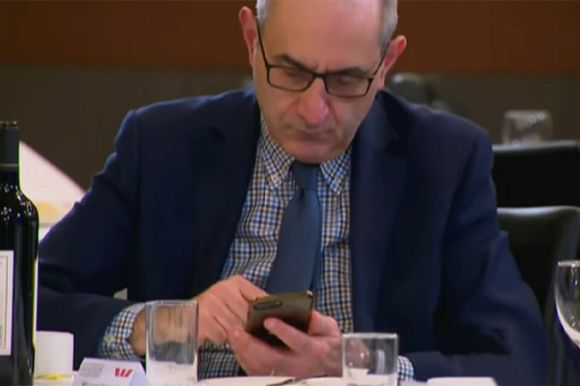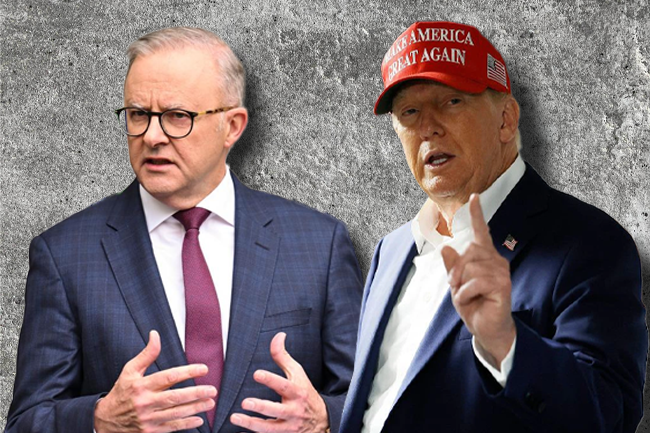The attempt by Mike Pezzullo to reintroduce Defence Notices is a concerning act of trying to stifle press freedom, writes Dr Alison Broinowski.
HOME AFFAIRS secretary Mike Pezzullo’s reputation for personal ambition and political chicanery has been around for years. But three aspects of the latest revelations must have senior public servants and journalists in Canberra worried.
The three concerns are: that Pezzullo’s encrypted text messages were intercepted and leaked (by whom?); that he seems to have known about former Prime Minister Scott Morrison’s five “secret” portfolios (who else did?); and that he tried in 2019 to get the then Prime Minister secretly to re-introduce D-Notices to protect “national security”. The first two involve real security breaches. The third re-opens an old wound in the side of the Fourth Estate.
Australians of a certain age, including Tony Wright at the Sydney Morning Herald, remember D (Defence)-Notices, a pre-World War I device for ensuring that Britain’s military affairs were not exposed in the press. D-Notices operated in Australia from 1952. Eventually, Australian opposition to them merged with anti-Vietnam war protests, and meetings of the defence, press and broadcasting committee quietly ceased in 1982.
In the UK however, the D-Notice system, now called Defence and Security Media Advisory (DSMA), still operates. The media is not allowed to reveal this, but we know that DSMA Notices were issued in 2018 to shut down reporting about the Skripal affair.
Sergei Skripal and his daughter Yulia collapsed in a park in Salisbury on 4 March 2018 and were taken to hospital. The British media soon sensationally claimed they had been poisoned with novichok, a highly toxic nerve agent produced in Russia, that was said to have immediate effects. But nothing was reported of their condition, or their subsequent whereabouts. The park location of Yulia’s anodyne interview by Reuters, shown in May 2018, was later recognised as RAF Fairford, a base for U.S. nuclear bombers.
In November 2018, police released inconclusive CCTV footage taken in Salisbury on 4 March, but they failed to show an image taken by bystanders and confirmed by at least three British newspapers, of Sergei feeding ducks in Avon Playground while Yulia watched.
The Skripals were supposedly contaminated by novichok, smeared on the handle of their front door — which they hadn’t touched since the morning. One of the boys who ate some bread which Sergei gave him strangely didn’t die, nor did any of the ducks. But the New York Times reported that images of dead ducks and sick children were passed by British intelligence to the CIA’s Gina Haspel.
When former President Donald Trump saw them, he was shocked and ordered 60 Russian diplomats expelled. If the NYT report is correct, the CIA and UK authorities deceived the President in order to deter him from improving relations with Russia.
Supposedly retired in Salisbury at 60 but provided with a house and a “generous” salary, Sergei Skripal was a double agent for the U.S. inside the GRU (military intelligence) before he was sent to Britain in a prisoner swap. Skripal was associated with Christopher Steele, whose company, Orbis Business Intelligence, founded in 2009, included “former UK intelligence professionals” like Pablo Miller, Steele’s former MI6 colleague.
Miller recruited Skripal in Estonia in the early 1990s, testified at his trial in 2007, was his neighbour in Salisbury a decade later and was perhaps his “handler”. In June-December 2016, Steele prepared the notorious “Trump dossier” containing 17 memos about the U.S. candidate’s colourful connections and alleged collusion with Russia, for which Steele was indirectly paid by the FBI. Craig Murray, a former UK Ambassador to Uzbekistan, suggested Skripal as a likely source.
As Foreign Secretary, Boris Johnson was quick to blame Russia for the Skripals’ poisoning and Chair of the Foreign Affairs Committee, Tom Tugendhat, called it a “warlike act” by Russia. Yulia was shown by Russian television telling her cousin in Moscow, by phone on 5 April 2018, that she was recovering. Under the DSMA system, the British media could not critique Reuters’ staged interview with Yulia, shown on BBC following her release from hospital.
Successive DSMA Notices were issued on 10 January 2018 (relating to the Christopher Steele investigation), then on 7 and 14 March and possibly a fourth on 30 June.
Craig Murray detected complicity between the BBC and Britain’s security services and his freedom of information request about the BBC’s Mark Urban’s several meetings with Skripal in 2017 was rejected. In September, the UK asked Trump not to release documents relevant to the Skripal investigation. Later, Britain vetoed a Russian call for an inquiry into the affair in the UN Security Council.
A public inquiry was overdue, but the media did not propose one. In January 2019, only local Salisbury radio reported that the “military nurse” who happened to attend the Skripals in the park was Colonel Alison McCourt, chief nurse of the British Army.
McCourt had experience with the Ebola virus and its transmission in Sierra Leone, and with the Porton Down research establishment near Salisbury, which had dealt with chemical and biological weapons, including sarin and VX, for 40 years. Her 16-year-old daughter, Abigail, was present. Whatever they did for the Skripals, neither Alison nor Abigail (like the boys and the ducks) suffered any contamination, even though both were vomited on.
While Russia has form with chemical and biological weapons, so do the U.S. and UK. No credible explanation of the poisonings in Salisbury is likely to emerge from mutual accusations. British official accounts are contradictory and unconvincing, yet journalists have accepted them or been silenced by DSMA. If there was nothing to hide, why not produce the facts and the Skripals?
It's just as well that Pezullo’s hope of secretly reviving D-Notices in Australia was dashed.
Dr Alison Broinowski is a former Australian diplomat, vice-president of Australians for War Powers Reform and vice-president of Honest History.
 This work is licensed under a Creative Commons Attribution-NonCommercial-NoDerivs 3.0 Australia License
This work is licensed under a Creative Commons Attribution-NonCommercial-NoDerivs 3.0 Australia License
Support independent journalism Subscribe to IA.















